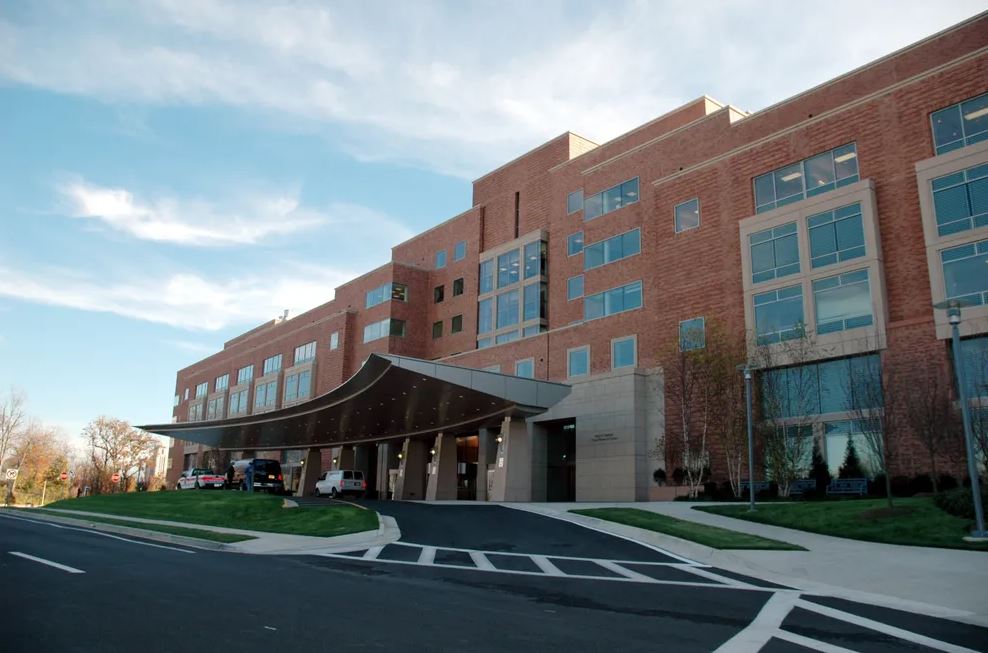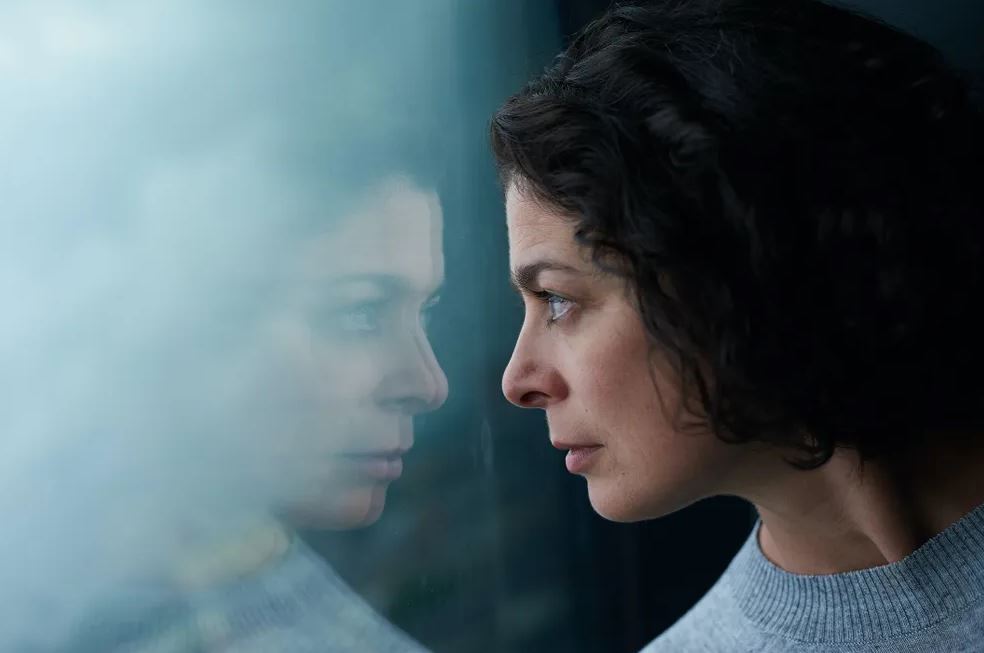The phone rang at 3:47 PM. It was one of those dull, gray Tuesday afternoons when the sky looked like it hadn’t slept in weeks, and Linda Meadows was elbow-deep in dirty dishes in her tiny apartment off Brooklane Street. The television murmured in the background, a crime documentary blaring something about betrayal and blood, and the faucet squeaked every few seconds like it had something to confess.
She nearly let the phone go to voicemail. But something, maybe instinct, maybe fate, made her dry her hands on her jeans and answer it.
“Miss Meadows?” came the woman’s voice—flat, professional, with the faint buzz of intercoms and distant chatter behind her.
“Speaking.”
“This is St. Catherine’s Hospital. I’m calling about your sister—Jenna Meadows.”
Linda felt her spine stiffen. Her heart stalled. That name. Jenna. It hadn’t passed her lips in nearly 14 years.
“I think you have the wrong number,” Linda said, cold and automatic.
“I’m so sorry to tell you this, but your sister has passed away due to complications during childbirth. She gave birth to two sons, and you are their next of kin,” the nurse explained. “They’re alive. Healthy. But… there’s no one else. You’re the only emergency contact she left.”
Linda didn’t breathe. The silence stretched. Jenna? Dead?
She didn’t cry. She didn’t gasp or collapse. She just gripped the counter until her knuckles turned white.
She hadn’t seen her sister in over a decade. Not since the night Jenna, seventeen and angry, dropped ten-year-old Linda off at a group home and never looked back.
Jenna Meadows had been both fire and ice. Beautiful, cold, unpredictable. Their mother died when they were both young—Jenna was twelve, Linda five—and their father wasn’t worth the whiskey he drowned in. Jenna had tried, at first. But life beat the sweetness out of her quickly. By seventeen, she was gone, and Linda was alone.
Linda remembered that night so vividly—the car ride in Jenna’s beat-up Honda, the sharp smell of smoke and perfume, the radio playing a love song too loud. And then Jenna’s goodbye, said like she was tossing out the trash: “You’ll be better off here, okay? I can’t do this anymore.”
It wasn’t just abandonment. It was betrayal. It was the echoing message that Linda wasn’t worth staying for.
She grew up bitter. She learned to care for herself. She got out of the system, scraped by through waitressing, cleaning jobs, the occasional lucky break. She never called Jenna. Never looked her up. The idea of “family” had become a fairytale turned horror story.
Linda didn’t remember hanging up. Or changing clothes. Or calling a cab. But somehow, she was standing in a dull hospital hallway thirty minutes later, her coat half-zipped, boots tracking in the slush of melting snow. The fluorescent lights buzzed, and the place smelled like bleach and microwaved soup.

Linda arrived at the hospital seeking answers and spoke to one of the nurses. The nurse informed Linda that Jenna had left behind a note before she passed away.
“It may be too little too late, but now I understand how many mistakes I made and how much I regret them.
I know that forgiveness is the last thing on your mind right now, but please consider my dying wish.
I am asking you to accept my children. I am begging you.
After all, only after becoming a mother did I understand what emotions our mother was experiencing when she asked me not to leave you.
I feel these emotions now… I’m so sorry,” the note read.

Linda found it difficult to process everything all at once and sat in the hospital wondering if there was more to the story. Where on Earth is their father, she thought to herself.
She discovered on Jenna’s cellphone that there were hundreds of calls and messages to a man named Derek. As it turned out, Derek had skipped town once he discovered that Jenna was pregnant.
Jenna was left alone with no support for months before she went into labor. This situation reminded Linda of her mother. Meredith had also been abandoned by her husband after Linda was born and needed to play the role of a single mother. Linda left one more message for the father of Amanda’s children. “I hope one day you realize your mistake by abandoning my sister and your sons. All I can hope is that one day you seek forgiveness before it’s too late,” the text read.
Now, in a sterile hospital room, she stared down at two identical bundles wrapped in pale green blankets. One stirred, blinking up at her with watery blue eyes. The other yawned, showing pink gums.
“They’re beautiful,” a nurse said beside her. “Do you want to hold one?”
Linda hesitated. Her hands, calloused and trembling, hovered like she was touching ghosts.
“They need someone,” the nurse added gently. “You’re all they’ve got.”
And God help her, she held one. Then the other. They smelled like powder and milk and new beginnings. And something in her cracked open.
“What are their names?” she asked, her voice hoarse.
“Jasper and Jude.”
Jasper and Jude. Her nephews.
Her sister’s sons.
Her family.
Taking them home wasn’t easy. There were forms, inspections, interviews. Social services poked through her apartment, her history, her finances. She had nothing. A two-room walkup, a mattress on the floor, a secondhand couch. But she fought for those boys. Maybe because she saw herself in them. Maybe because they had no one else. Maybe because she wanted to finally mean something to someone.
She got a second job. Nights at a diner. Days cleaning offices. She learned how to change diapers half-asleep, how to soothe colic with humming and rocking, how to stretch a dollar until it snapped. The exhaustion was bone-deep. The loneliness louder than ever.
But there were moments.
Like when Jude gripped her finger for the first time, or when Jasper laughed—a real laugh, bright and sudden—because she made a dumb face while changing his diaper.
Years passed.
Jasper grew mischievous. Jude became thoughtful. They asked about their mom around age six. Linda didn’t lie. But she didn’t poison them either.
“She made mistakes,” she said. “But she gave me you. And I’m never letting you go.”
They called her “Auntie Mama.” She didn’t correct them.
At their eighth birthday, Jasper hugged her tight and whispered, “I’m glad we got you.”
She smiled through tears.
Sometimes at night, Linda still dreamed of that group home—the cold beds, the empty faces, the waiting. She dreamed of her sister driving away without looking back. But now, the dream changed. Now, it ended with Jasper and Jude running toward her, arms outstretched, laughing.
Linda never asked for forgiveness. And maybe Jenna didn’t deserve it. But the boys? They did. They deserved everything. And in giving them a life, Linda got one back. Not the one she planned. But one that mattered.
Love, after all, doesn’t always arrive gently. Sometimes, it crashes through your life like a storm. Wrecks the past. Drenches the pain. And then, somehow, leaves something blooming in its place.
Jasper and Jude. Blood of her blood.
A second chance—given not by her sister, but by fate.
And this time, Linda didn’t walk away.
She stayed.
